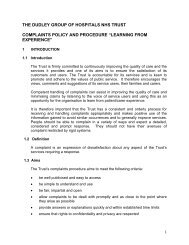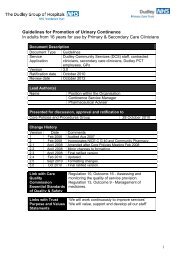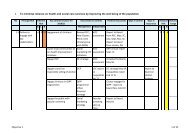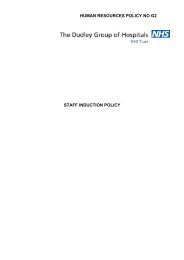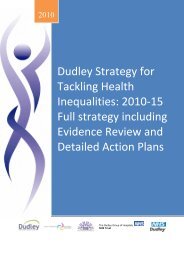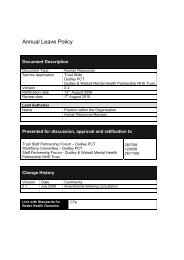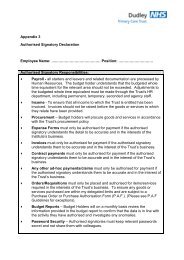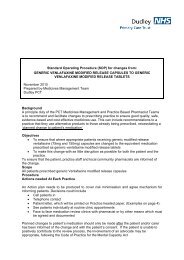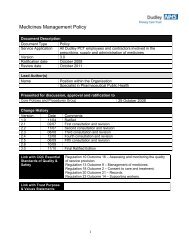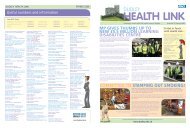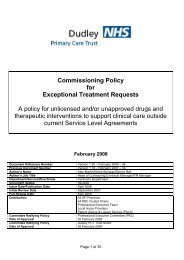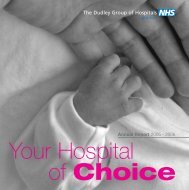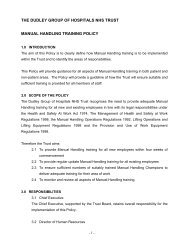Chronic Kidney Disease Pathway Document Description Presented ...
Chronic Kidney Disease Pathway Document Description Presented ...
Chronic Kidney Disease Pathway Document Description Presented ...
Create successful ePaper yourself
Turn your PDF publications into a flip-book with our unique Google optimized e-Paper software.
Irbesartan*<br />
Valsartan<br />
Losartan*<br />
*Specifically licensed for patients with type 2 diabetes and<br />
nephropathy/microalbuminuria.<br />
ARBs should be used as a second line treatment, only in patients who do not<br />
tolerate ACE inhibitors (usually due to development of persistent dry cough which<br />
does not disappear within two months of starting the ACE – check no other<br />
caveats).<br />
N.B Heart Failure<br />
The commonest fear for not using an ACE/ARB in patients with Heart Failure<br />
(HF) is the potential for worsening renal function. However, although the<br />
CONSENSUS trial demonstrated a 30% rise in Creatinine; the subsequent<br />
follow-up showed 19% returned to baseline and the ACE was generally well<br />
tolerated.<br />
Drug treatment with an ACE or ARB can contribute to hyperkalaemia, which can<br />
also be exacerbated by treatment with spironolactone (indicated in the treatment<br />
of heart failure).Severe hypovolaemia, may complicate the treatment of heart<br />
failure with high dose diuretics, as it may also cause hyperkalaemia in the<br />
presence of CKD, although in the presence of volume overload, diuretic<br />
treatment may be a logical treatment for hyperkalaemia. For these reasons,<br />
working out the cause and appropriate treatment of hyperkalaemia can be<br />
difficult, and a good reason for referral to / advice from a nephrologist.<br />
NSAIDs are associated with worsened outcomes in Heart Failure because they<br />
oppose the benefits of ACE by inhibiting the production of prostacyclin.<br />
Spironolactone should be avoided in patients with a GFR < 30 but can be used<br />
with caution in patients where eGFR is between 30 – 60 ml/min. It should be<br />
withheld in patients with diarrhoea and vomiting, who have heart failure and<br />
CKD, due to dehydration and hyperkalaemia.<br />
Spironolactone, ACE and ARB should be reduced or stopped if the serum<br />
potassium is greater than 6.0 mmol/l. This includes potassium sparing diuretics.<br />
http://www.renal.org/CKDguide/ckd.html<br />
37



